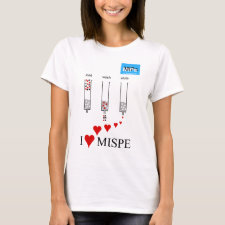
Authors: Sun Y, Li Y, Xu J, Huang L, Qiu TY, Zhong S
Article Title: Interconnectivity of macroporous molecularly imprinted polymers fabricated by hydroxyapatite-stabilized Pickering high internal phase emulsions-hydrogels for the selective recognition of protein.
Publication date: 2017
Journal: Colloids and Surfaces B: Biointerfaces
Volume: 155
Page numbers: 142-149.
DOI: 10.1016/j.colsurfb.2017.04.009
Alternative URL: https://www.researchgate.net/publication/315956254_Interconnectivity_of_macroporous_molecularly_imprinted_polymers_fabricated_by_hydroxyapatite-stabilized_Pickering_high_internal_phase_emulsions-hydrogels_for_the_selective_recognition_of_protein
Abstract: Hydroxyapatite hybridized molecularly imprinted polydopamine polymers with selective recognition of bovine hemoglobin (BHb) were successfully prepared via Pickering oil-in-water high internal phase emulsions-hydrogels and molecularly imprinting technique. The emulsions were stabilized by hydroxyapatite of which the wettability was modified by 3-methacryloxypropyltrimethoxysilane. The materials were characterized by SEM, IR and TGA. The results showed that the BHb imprinted polymers based on Pickering hydrogels (Hydro-MIPs) possess macropores ranging from 20 μm to 50 μm, and their large numbers of amino groups and hydroxyl groups result in a favorable adsorption capacity for BHb. The maximum adsorption capacity of Hydro-MIPs for BHb was 438 mg/g, 3.27 times more than that of the non-imprinted polymers (Hydro-NIPs). The results indicated that Hydro-MIPs possessing well-defined hierarchical porous structures exhibited outstanding recognition behavior towards the target protein molecules. This work provided a promising alternative method for the fabrication of polymer materials with tunable and interconnected pores structures for the separation and purification of protein in vitro
Template and target information: protein, bovine hemoglobin, BHb
Author keywords: Hydroxyapatite, Molecularly imprinted polydopamine, Pickering hydrogels, protein, selective recognition



Join the Society for Molecular Imprinting

New items RSS feed
Sign-up for e-mail updates:
Choose between receiving an occasional newsletter or more frequent e-mail alerts.
Click here to go to the sign-up page.
Is your name elemental or peptidic? Enter your name and find out by clicking either of the buttons below!
Other products you may like:
 MIPdatabase
MIPdatabase









